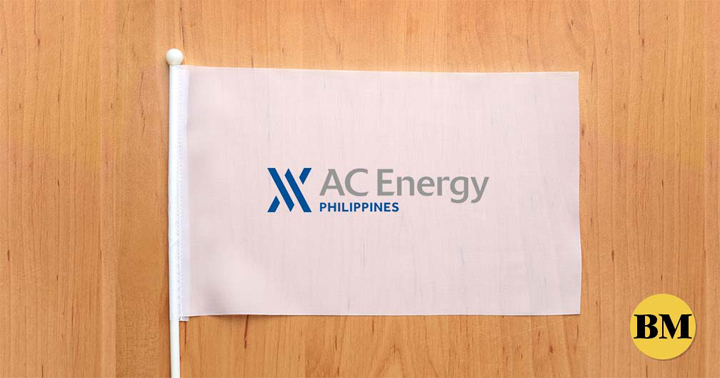ACEN net income dives in January-March
BY LENIE LECTURA – MAY 11, 2022
from Business Mirror

ACEN Corp. posted a 68-percent decline in net income for the first quarter of the year to P405 million even as revenues grew by 29 percent during the period.
The decline in net income was driven by higher costs of purchased power due to elevated spot market prices during a major preventive maintenance outage of the South Luzon Thermal Energy Corp. (SLTEC) thermal plant.
During the period, revenues were also affected by curtailment to the company’s output in the Visayas because of transmission line damage caused by Typhoon Odette and prior damage to a major sub-sea cable.
To date, most transmission and distribution lines have been restored, but curtailment is still expected for the 80megawatt (MW) Islasol solar farm until the end of the year, due to reconstruction on the said sub-sea cable.
ACEN also incurred a one-time buyout expense related to a customer contract. Without the impact of these events, ACEN’s net income would have reached approximately P1.6 billion during the period, for a growth of 23 percent year-on-year.
“The company faced significant headwinds in the first quarter from the impact of natural disasters, extended plant outages, and elevated spot purchases. However, we expect these issues to be resolved in the short to medium term, with the full rehabilitation of transmission lines damaged by Typhoon Rai (Odette), and supported by new operating capacity coming online in the next few months,” ACEN Chief Finance Officer and Treasurer Cora G. Dizon said.
Consolidated revenues, meanwhile, stood at P7.4 billion. This was driven by new operating capacity, including two solar farms each in the Philippines and in India, as well as several wind facilities in Vietnam.
Attributable output increased by 4 percent to 1,161 gigawatt-hours (GWh) in the first quarter of the year. Although output grew as a result of new operating capacity opened in 2021, this was offset by the effects of the SLTEC maintenance outage, as well as curtailment in the Visayas.
Output from international assets rose by 62 percent, reducing the impact of the decline in Philippine generation. Renewables’ contribution to ACEN’s output increased by a significant 52 percent, bringing renewable energy (RE) share to 76 percent of total energy production.
ACEN currently has about 3,800 MW of attributable capacity in the Philippines and across the region, of which about 3,300 MW, or close to 90 percent, is renewable. This puts the company in a strong position to reach its 5,000-MW target earlier than 2025, towards its vision of becoming the largest listed renewables platform in Southeast Asia.
To help achieve its capacity expansion targets and return to a robust growth trajectory, ACEN recently entered into new partnerships. In March, the company formed a joint venture with CleanTech Renewable Energy 4 Corp. to begin construction on a 133 MW solar farm and transmission line in Lal-lo, Cagayan, Philippines.
The following month, ACEN and ib vogt, a German-based developer of tracking solar farms, have agreed to set up a 1,000-MW solar asset platform in Asia.
Finally, in late April, ACEN announced the formation of a strategic partnership with United States-based firms Pivot Power Management and UPC Solar & Wind Investments LLC to pursue opportunities to acquire operating wind projects in the United States and to explore strategies for extending their useful life through preventive maintenance and repowering.
“Recent global events have shed light on the importance of energy security and have accelerated the worldwide energy transition. The recent conflict in Ukraine and supply chain disruptions have led to soaring prices of commodities and fossil fuels, highlighting the need for more indigenous and sustainable energy sources.
ACEN’s aggressive RE portfolio expansion and geographical diversification allow us to capitalize on these developments in the long run,” ACEN President and Chief Executive Officer Eric Francia said.


